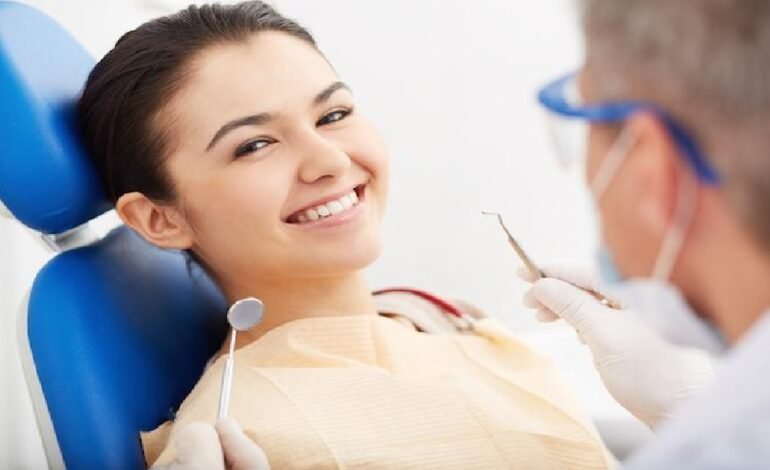The Role of Dental Health in Women’s Hormonal Balance

Usually, women overlook the relationship between oral health and their hormonal changes. As a matter of fact, the hormonal fluctuations provide a great effect on their oral health since they have undergone various changes in life. So it is important for women to understand that oral health matters as it contributes to and relates to holistic well-being.
Get to know more about the hormonal changes that affect women throughout different stages of their life and what they can do to maintain their bright smiles.
Oral Health Changes During Puberty
When women reach the puberty stage, there will be increased levels of Estrogen and progesterone. These hormones can make the gums more sensitive, leading to a higher level of blood flow. When this happens, adolescent women are susceptible to bacteria and plaque that would result in discomfort and inflammation. Some may experience puberty gingivitis, and this is marked by red, bleeding gums. So to avoid dental issues in the long run, establish a strong oral hygiene like brushing your teeth regularly, flossing and dental checkups from a professional dentist in Kirrawee, NSW.
Oral Health Effects of Having Menstruation
There will be periodic hormonal fluctuations during menstruation, and it extremely affects women, oral health included. They will go through menstrual gingivitis caused by increased progesterone levels with changes in the mouth like swollen and bleeding gums, dry mouth, and canker sores. However, these changes won’t last because it will subside after menstruation. During this time, it’s best to avoid drinks and snacks that have superb sugar content, to drink plenty of water, and make flossing and brushing a daily routine to minimise hormonal changes impact.
Oral Health Impact During Pregnancy
Pregnancy gingivitis is the result of hormonal changes that are caused by high progesterone and estrogen levels. It is characterised by swollen, tender and bleeding gums. This should be treated because if not, it leads to periodontitis, a serious gum infection that affects both the mum and the baby’s health. There are more factors that are associated with this such as preterm birth and low birth weight. Aside from pregnancy gingivitis, some may experience pregnancy tumours, the non-cancerous growth on the gum, and it appears after delivery. Having good dental care can put a stop to complications.
Oral Health Changes Throughout Menopause
At this time, women undergo estrogen decline. Symptoms include dry mouth or xerostomia, and this could lead to reduced saliva production leading to gum disease, risk of cavities, and oral infections. Another symptom is the burning mouth syndrome, a stinging sensation in the gums, lips and tongue. This issue affects women’s quality of life and causes them discomfort. Bone loss is another symptom and caused by a drop in estrogen. If you are postmenopausal, the more you should be vigilant with your oral health, so have regular dental checkups and possibly use saliva substitutes or mouth rinses to help alleviate post-menopausal symptoms.
Hormonal fluctuations should not be taken negatively. There are several proactive steps to maintain bright, radiant smiles and overall well-being no matter what life stages women are into now. It’s just a matter of having good oral hygiene, regular dental checkups, and other habits that ensure their oral and overall health are balanced.
Read more: https://newpawsibilities.com/












